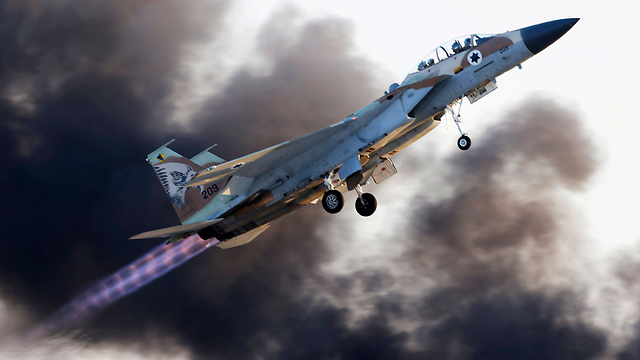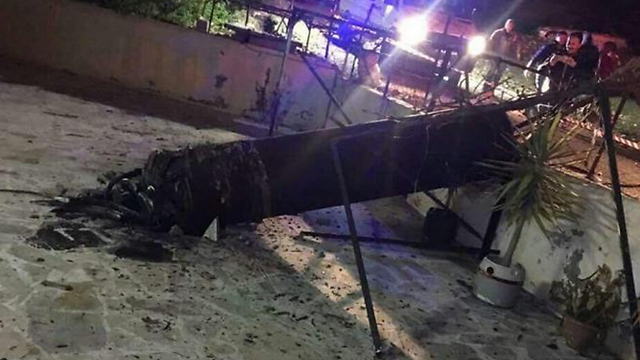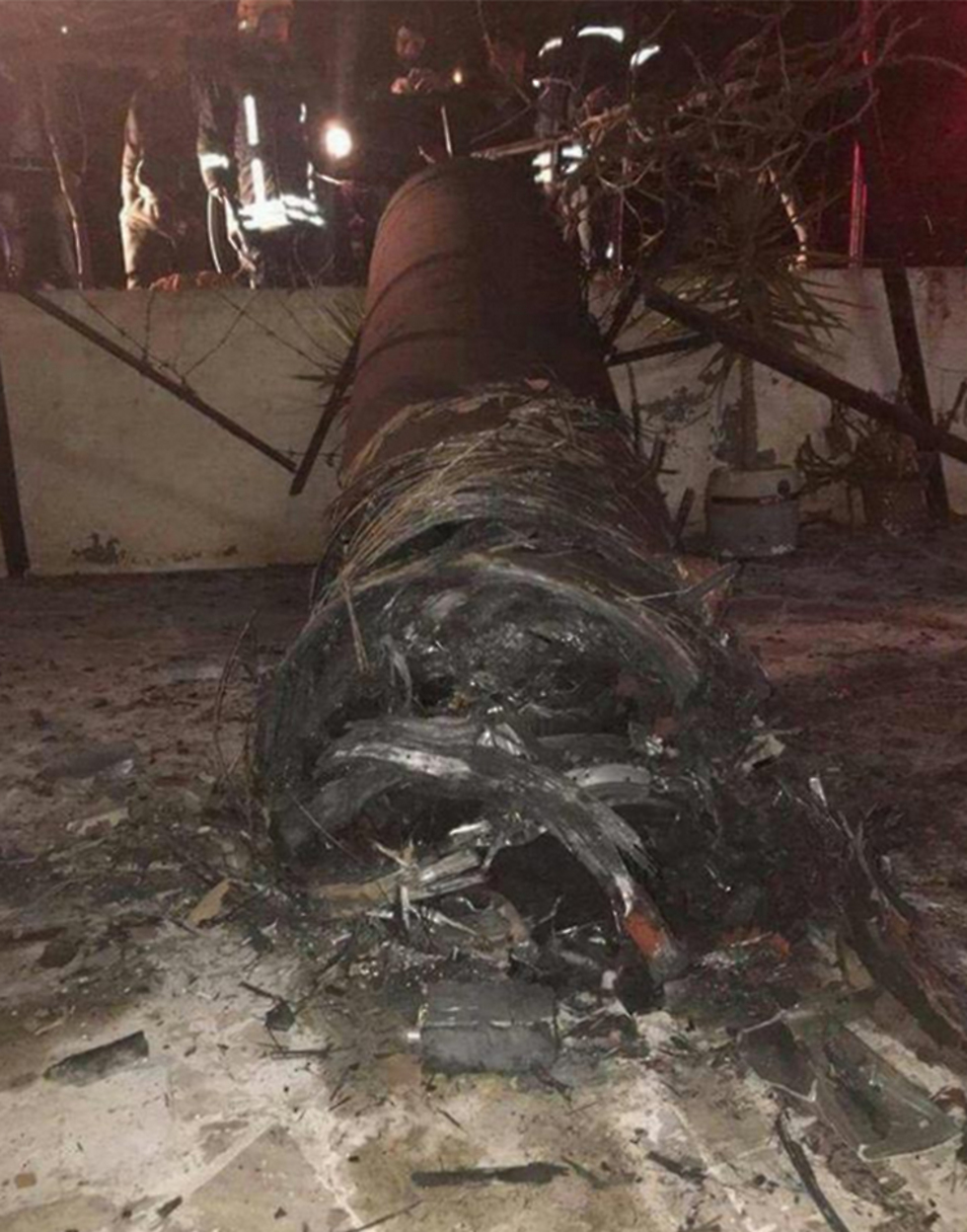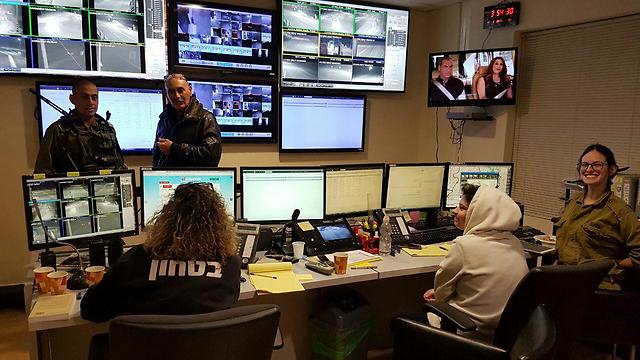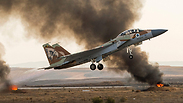
Israel intercepts missile fired at IAF jets by Syria
After Israeli jets strike targets in Syria, anti-aircraft missiles are sent from Syria to hit the Israeli jets; Israel manages to strike down Syrian missiles without casualties or damage, as Syria vows to .
IDF reported on Friday that it has shot down one of numerous anti-aircraft missiles launched Thursday night by Syria at Israeli F-15 fighter jets that had hit designated targets within Syria. Israeli Arrow anti-aircraft missiles were used to intercept a Syrian S-200 missile and protect its jets. Syria, in the meantime, described the Israeli strike in Syria as a "blatant Israeli act of aggression."
The Israeli Military reported that its planes struck several targets in Syria, and were back in Israeli-controlled airspace when the Syrian missiles were launched at its jets.
Missile sirens had sounded in Israeli settlements in the Jordan Valley in the West Bank at 02:43am, with two witnesses hearing an explosion a few minutes later. The IAF's interception of the Syrian anti-aircrafts missiles, in addition to the resulting sirens, prompted the IDF to issue a response acknowledging the its strikes in Syria. Normally, Israel does not divulge information about such operations. This is the forst time the IDF confirmed the operational use of its Arrow ground-to-air missiles.
The Syrian Army responded to the strike by saying, “This blatant Israeli act of aggression came as part of the Zionist enemy’s persistence with supporting ISIS terrorist gangs and in a desperate attempt to raise their deteriorating morale and divert attention away from the victories which Syrian Arab Army is making in the face of the terrorist organizations.”
The Israeli Military said in its own statement that one of the anti-aircraft missiles launched against its planes had been intercepted, adding that all IDF jets had returned to Israel unharmed. The blast from the interception was heard as far away as Jerusalem, dozens of miles from the site. No casualties or damage were reported.
"Overnight IAF (Israeli Air Force) aircraft targeted several targets in Syria. Several anti-aircraft missiles were launched from Syria following the mission and IDF (Israel Defence Force) Aerial Defence Systems intercepted one of the missiles," the military said in its statement.
Arab media reported that Israel had targeted a delivery of advanced weaponry to Hezbollah in its airstrike. Syria responded to the Israeli strikes with its its own missile attack, with the Syrian Army stating that it used S-200 anti-aircraft missiles against the Israeli jets.
Israel has carried out dozens of strikes to prevent weapons smuggling to the Iranian-backed Lebanese group Hezbollah, which is fighting rebels alongside the Syrian army.
Prior to the release of the IDF's statement, sources in Jordan were reported that an S-200 anti-aircraft missile fell Thursday night in the northern area of Irbid, following which security forces surrounded the area of descent. It is still unclear whether the object was the remnants of the missile intercepted by Israel, part of the IAF missile, or another object.
Iran has been Syrian President Bashar al-Assad's staunchest backer and has provided militia fighters to help him. Israel is concerned Hezbollah, with which it fought a war in 2006, is trying to obtain sophisticated weapons it could use against Israel.
Following the night's events, the air space above the Golan Heights was closed to flights.
Last week, Prime Minister Benjamin Netanyahu met in Moscow with Russian President Vladimir Putin to discuss what he charged were Iran's attempts to establish a permanent military foothold in Syria.
Yoav Zitun, Roi Kais, Elisha Ben Kimon, Elior Levy & Roi Yanovsky contribued to this article.
(Translated and edited by Gahl Becker)











